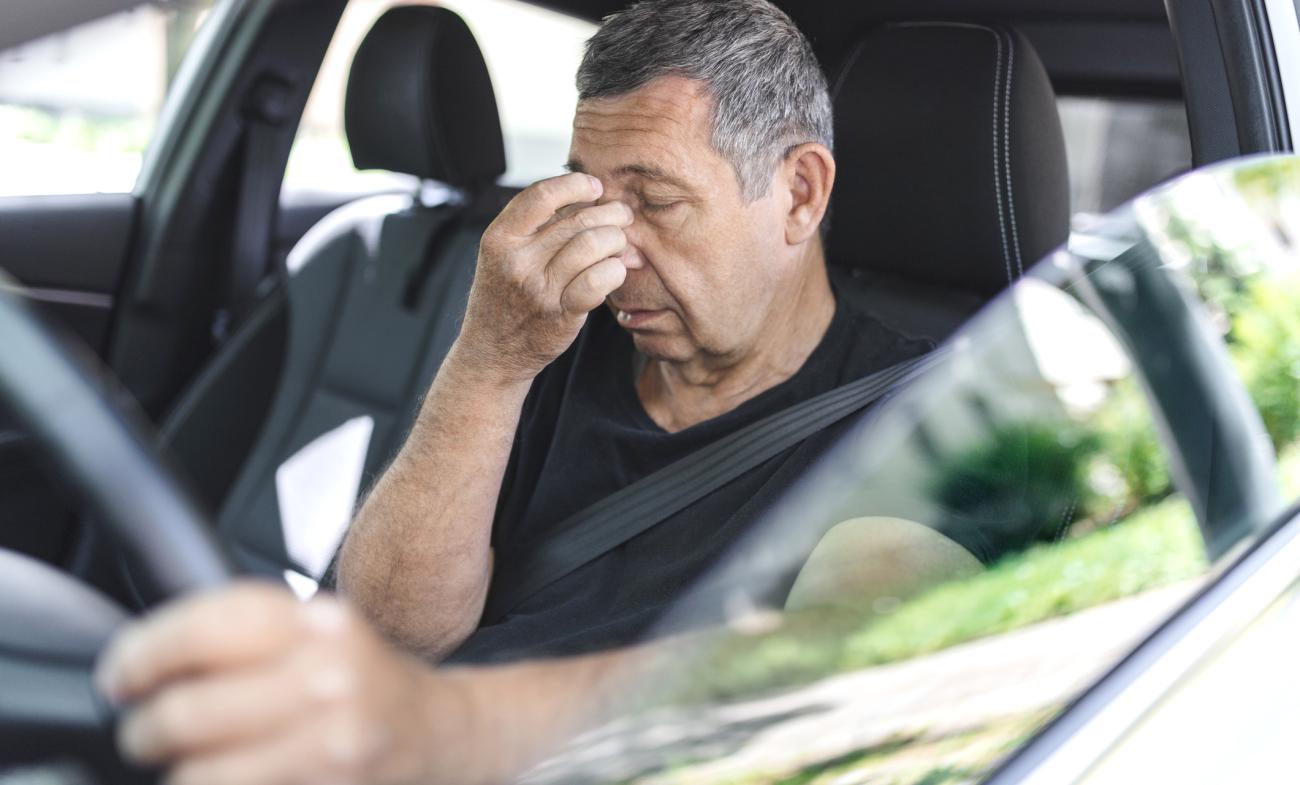
Our experts outline the dangers of drowsy driving and share tips for staying safe on the road.
Lack of sleep can have many negative effects, both on and off the road. In Canada, driver fatigue contributes to 21 per cent of all car crashes, with an estimated 100 fatigue-related motor vehicle fatalities each year. Vancouver Coastal Health Research Institute emergency medicine expert Dr. Jeff Brubacher and research coordinator Bianca Boicu explain the hazardous impact of drowsy driving, warning signs of fatigue and practical tips to help you stay safe behind the wheel.
Q: I often feel tired during my morning commute. How does drowsiness affect my driving performance?
A: Driving is a highly complex task that requires a range of cognitive and motor skills, many of which are compromised by fatigue. In extreme cases, drowsy drivers can fall asleep at the wheel, but even without falling asleep, drowsiness significantly impairs driving ability. Fatigue affects attention, vigilance and reaction time, making it harder to make safe driving decisions. Common behaviors of fatigued drivers include lane weaving, speeding, ignoring road signs and sudden braking — all of which can lead to accidents if a driver fails to notice a red light or takes too long to brake.
Q: What are the warning signs that indicate I may be too tired to drive?
A: Recognizing your own drowsiness is key to staying safe. Before driving, check in with yourself: are you frequently blinking, experiencing heavy eyelids, having trouble remembering the last few minutes or zoning out? These are indicators to stay off the road until you are more awake.
If you are already on the road, pay attention to your driving performance. If you notice that you are weaving, speeding or failing to respect road signs, pull over as soon as it is safe to do so and take a quick 20-minute nap.

Q: Are certain individuals at higher risk of drowsy driving?
A: Yes, several factors can increase vulnerability to drowsy driving. The main risks include extended periods of wakefulness, poor sleep quality, driving during circadian lows (late night, early morning and mid-afternoon) and sleep disorders such as sleep apnoea or insomnia. Shift workers, especially those switching between day and night shifts, are particularly susceptible, as are teenagers, who often face sleep deprivation and lack driving experience.
Q: How does drowsy driving compare to driving under the influence of alcohol or drugs?
A: Drowsy driving can have similar effects as driving under the influence of alcohol or drugs. Both drowsiness and alcohol impair alertness, attentiveness, reaction time and decision-making. Research suggests that just one night of sleep deprivation may impair driving more than having a blood alcohol concentration slightly over the legal limit. However, individual response to both sleep deprivation and substances like alcohol or cannabis can vary widely.
Q: What lifestyle factors can increase my risk of drowsy driving? Do specific dietary choices or medications play a role?
A: Consistently getting enough sleep is the best way to reduce your risk of drowsy driving. Previous research has shown that exercise, nutritious diets and exposure to sunlight can also help reduce drowsiness. Alcohol, even in amounts below the legal limit, can worsen drowsiness and should always be avoided before driving. Some medications, including certain antihistamines or sleep aids, can increase drowsiness. If possible, try to avoid driving during your natural circadian low points, especially if you are already feeling tired.




